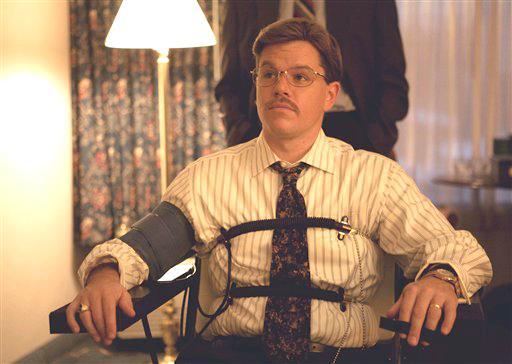Certain directors desire to be everything to everyone. To one crowd, they want to be seen as saviors of the independents, masters toiling in a job beneath them. Their films tend to be highbrow and technically innovative, featuring zany dialogue and emphasizing plot and atmosphere. To another crowd, these same people emerge as populists, having become skillful at tapping into the cerebral cortex of the masses. Their films are trafficked through star power, flashy visual style, an abundance of pop culture references, with minimal plot as a necessary crutch in the service of ‘entertainment.’George Clooney made “Good Night and Good Luck,” then “Leatherheads.” The Coen brothers went from “No Country for Old Men” to “Burn After Reading.” Steven Soderbergh made “Ocean’s Thirteen,” then jumped ship to “Che” and “The Girlfriend Experience.”One wonders why there needs to be a distinction between art and entertainment, between enjoyment of a film and appreciation of the intelligence behind it. Where would masterpieces like Alfred Hitchcock’s “North by Northwest” and Akira Kurosawa’s “Seven Samurai” lie within this artificially constructed continuum?Anyway, Soderbergh has returned to the great unwashed with his new film “The Informant!””The Informant!” is about a corporate whistleblower, Mark Whitacre, who worked with Archer Daniels Midland, an agriculture-based conglomerate, but ratted on them to the FBI. In the early ’90s, Whitacre, as an ADM division head, exposed a scheme by the company and several Asian agribusiness companies to corner the lysine market by forming a cartel. (Lysine is an important amino acid used in baking products and animal feed.)”The Informant!” falls cleanly within Soderbergh’s body of work, a film with unique flair made by a technically talented director. The pacing is subtle, the composition of elements within the frame is competent. Like “The Limey” and “Traffic,” “The Informant!” is exasperating, distancing and unemotive; unlike these two, it isn’t terribly memorable. One doesn’t have much to feel; it’s all tireless banality. The film shares with “Burn After Reading” a belief: zaniness equals comedy — I remain unconvinced. Unlike most genres, comedy is not a democracy; no one needs to be bullied by popular opinion to laugh.The film relies on an over-the-top voiceover narration, which sharply contrasts with the persona displayed by Whitacre onscreen, to create its farcical set pieces. An interior monologue is when a character’s thoughts are verbalized and is capable of shocking the audience when used correctly, as in “Sunset Boulevard,” or misdirecting them, like in “The Usual Suspects.” Here, however, it reveals a lazy script which is unable to show without telling.Though the film is sold as a comedy — a genre Soderbergh is familiar with, having directed the Ocean series — his characters appear to be puppets feigning life. While the Ocean movies were by no means perfect, festered by inside jokes known only to the cast, there were at least some sequences, like the heist, the audience could enjoy.”The Informant!” would have fared better with a director who is attuned to the way human beings behave. In such a case, this comedy of errors, deception and incompetence would have been an exceptional plunge into the human psyche. All we get here is surface treatment.POSTSCRIPTI’ve noticed an unpalatable trend of Nigerians increasingly popping up in films as token villains. Nigerians have now joined Middle Eastern terrorists, female Asian assassins, South American drug dealers and Eastern European sex traffickers as identifiable stereotypes in pop culture. From the gang leader in “Wolverine,” the warlord in “District 9” and the Playstation 3 advertisement about Nigerian millionaires, to the references about 419 fraud in “The Informant!,” I’m struck by how these depictions are accepted by audiences as an undeniable fact.This condition is self-induced. For a country that boasts the third largest film industry in the world (after the United States and India) it is astonishing there exists no Nigerian filmmaker of global repute, no actor with the clout of Shahrukh Khan and no film that has made the rounds at international festivals. With all our potential, Nigeria’s impact in the world of film is negligible.It is now necessary for Nigerians to end their pathetic hand-wringing and resist empty gestures, such as the ban on “District 9.” Instead we should look to reverse the situation by presenting a better face to the world. Nigeria needs to become an expert in cinematic diplomacy. Nigerian filmmakers around the world, unite.Freke Ette is a political theory graduate student from Uyo, Nigeria. Follow him on Twitter @TDR_fette.—-Contact Freke Ette at fette@lsureveille.com
Freke Friday: Soderbergh’s ‘Informant!’ all technique, banality
September 24, 2009

Matt Damon stars as Mark Whitacre in a scene from, “The Informant.”





